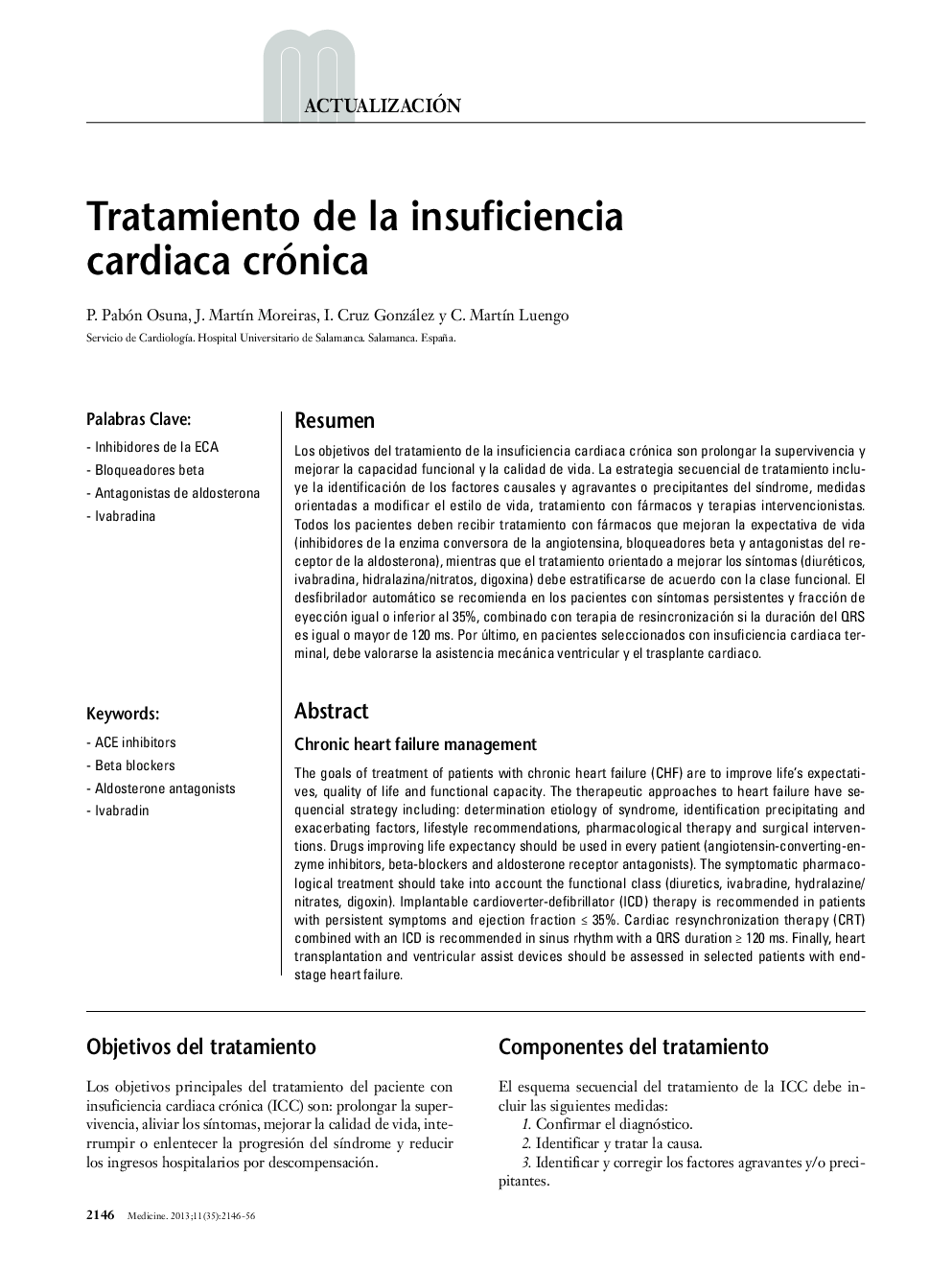| Article ID | Journal | Published Year | Pages | File Type |
|---|---|---|---|---|
| 3805931 | Medicine - Programa de Formación Médica Continuada Acreditado | 2013 | 11 Pages |
Abstract
The goals of treatment of patients with chronic heart failure (CHF) are to improve life's expectatives, quality of life and functional capacity. The therapeutic approaches to heart failure have sequencial strategy including: determination etiology of syndrome, identification precipitating and exacerbating factors, lifestyle recommendations, pharmacological therapy and surgical interventions. Drugs improving life expectancy should be used in every patient (angiotensin-converting-enzyme inhibitors, beta-blockers and aldosterone receptor antagonists). The symptomatic pharmacological treatment should take into account the functional class (diuretics, ivabradine, hydralazine/nitrates, digoxin). Implantable cardioverter-defibrillator (ICD) therapy is recommended in patients with persistent symptoms and ejection fraction ⤠35%. Cardiac resynchronization therapy (CRT) combined with an ICD is recommended in sinus rhythm with a QRS duration ⥠120 ms. Finally, heart transplantation and ventricular assist devices should be assessed in selected patients with end-stage heart failure.
Related Topics
Health Sciences
Medicine and Dentistry
Medicine and Dentistry (General)
Authors
P. Pabón Osuna, J. MartÃn Moreiras, I. Cruz González, C. MartÃn Luengo,
